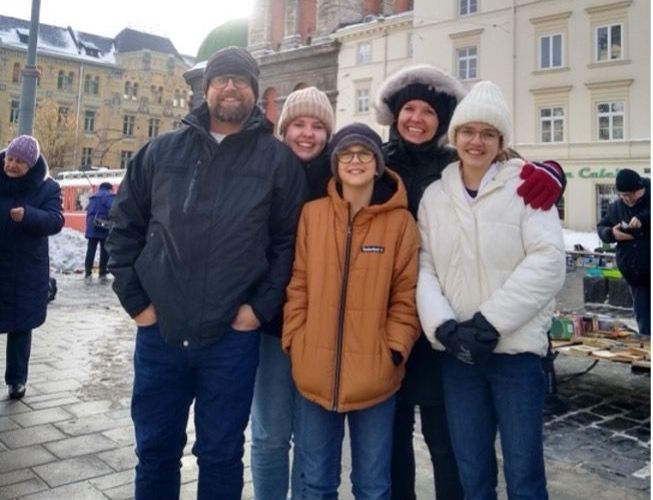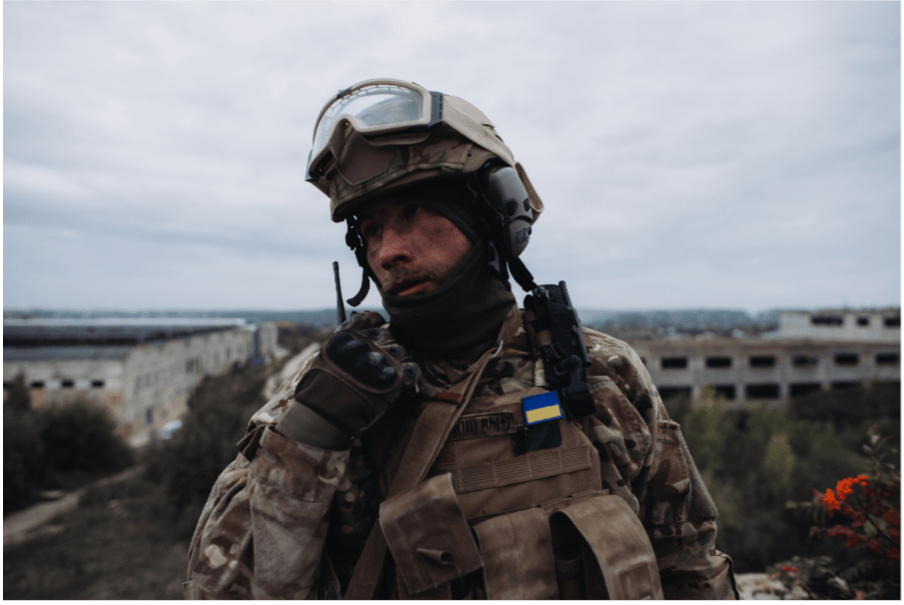
From Theory to Reality: A Family’s Journey to Ukraine
The paths into cross-cultural ministry can be as unique and varied as the people who God calls to serve him in his global harvest. The Holy Spirit knows us and knows how to move in his followers as they contemplate cross-cultural service. David knew this and marveled,
Lord, you have examined me;
you have known me.
2 You know when I rest[a]
and when I am active.[b]
You understand what I am thinking
when I am distant from you.[c]
3 You scrutinize my life and my rest;[d]
you are familiar with all of my ways.
4 Even before I have formed a word with my tongue,
you, Lord, know it completely!
5 You encircle me from back to front,
placing your hand upon me.
6 Knowledge like this is too amazing for me.
It is beyond my reach,
and I cannot fathom it.
Psalm 139:1-6
David rested in and was encouraged by God’s perfect understanding of all his habits, his conversational style, his preferences, etc. Therefore, it seems to follow that the Holy Spirit, himself, cultivates each person’s passion, provides each person’s guidance, and opens doors for each person to gain experience and skills, all in the most unique ways for each person he calls.
Some people begin this journey by reading books, some by meeting people from a culture different than one’s own, and some by growing up bi-culturally. But no matter where we start, God’s unique path into cross-cultural service always moves us out of theoretical connection with other people to real relationships with genuine people who happen to be very different from us.

Facing faith questions head-on
That is what happened to one Arizona family whom God has called to serve him in Kyiv, Ukraine. Tim and Angela Mitchell spent many years following Jesus, growing in their understanding of his Word and his transforming work in the world. Their family expressed the redemptive love of Jesus by fostering children. The generosity of their love would sometimes even extend to their kids’ families of origin, as they hoped and helped some families reunite healthily.

Tim’s faith journey included struggles when he encountered Bible critics that sowed doubt about the veracity of the Scripture’s claim to be the Word from God. In fact, Tim’s search for answers led him all the way to doctoral study in textual criticism.
While engaging with an academic organization of theological educators and thinkers, Tim met SEND International, cross-cultural theological educator, Rick Perhai, who serves in Kyiv, Ukraine. Rick challenged Tim to use his training to help Ukrainian pastors, lay people, and fellow theological educators address questions and doubts in their Ukrainian context.

As their conversation went on, the Mitchells did sense that God was indeed leading them to serve Jesus by helping train Ukrainian Bible scholars, pastors, and leaders.
However, this conversation happened before Ukraine’s people were plunged into war in 2022. What did this mean for this leading of the Spirit they had sensed? Deep concern and questions added a new layer of complexity to their discernment process.

Putting theory into practice
It became clear to the Mitchells and to our long-term workers currently in Ukraine that the theory about serving Ukrainians needed to continue in Ukraine to give way to genuine connection and real relationship building. So, instead of testing the waters, they boldly plunged in.
In January 2024, Tim and Angela and their three eldest kids, headed to Ukraine for ten days to make real connections with real Ukrainian people, understand the true conditions on the ground in Ukraine, and experience what it means to trust God in a very new context than what they knew in Arizona.
They joined Rick and his wife, Marilyn Perhai in the western Ukrainian city of Lviv, for a seminary student retreat. And here, they met Ukrainian students. They were struck by the students’ hospitality, kindness, and trust in God’s continued goodness despite the war.
They sensed how different life was for these seminary students—students who spoke a different language, who worked multiple jobs to deal with chronic underemployment, all while juggling family and ministry, and all in a country under attack.

These students also had the chance to connect with Tim and Angela. One thing Tim didn’t anticipate was that these seminary students were very curious about Tim’s doctoral work in textual criticism. They asked many questions about Tim’s faith journey and his studies. The very questions and concerns that had sparked Tim’s own Bible education were also the same questions many of these students had encountered as well.
Embracing new realities
Once in Kyiv, Angela says it was a real blessing to see the actual places where they might live, where the kids would go to school, and where Tim would eventually teach. They met other SEND teammates and even had the chance to meet Ukrainian language teachers, and other families living in Kyiv as expats. Being in a real Ukrainian context allowed them to understand that culture and language learning are big priorities if they are to thrive in such a challenging place.

Even feeling the real weather differences gave them another chance to see the challenges of adapting to life in Ukraine. “For us desert rats,” Angela explained, “(one challenge) is accepting the cold and different changes of seasons. But that it can also be fun and exciting—the kids liked that. But also just realizing that being able to adapt to the bleak cold winters is definitely a challenge we know we will face.”

In today’s world, faithful followers of Jesus will be challenged to keep pushing out of the theory of living as salt and light, and further into his light, where real gospel-fused relationships are forged. Knowing that he encircles us front to back and knows our unique path into his harvest, enables us to love real people on their paths. As we continue to follow the Holy Spirit’s calling, we begin to discover the areas we need to grow in which will help us in facing real challenges in a suffering world hungry for Jesus.
Additional Posts




